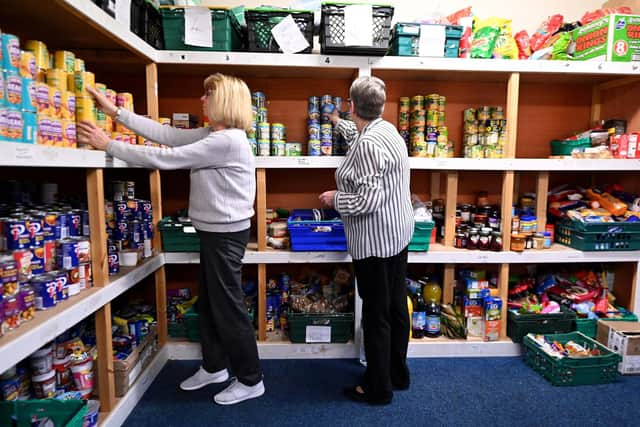Smart Money - Sam Richardson: Donations using Gift Aid scheme benefit charities - and can help cut your tax bill
Answer: Gift Aid is a great way to support causes you care about while cutting your tax bill. Using the Gift Aid declaration when donating to a registered charity or community amateur sports club allows it to claim an extra 25p for every £1 you give, and it doesn’t cost you anything extra.
For the taxpayer (the donor), your basic rate and higher rate tax bands are extended by the same amount as your donation, plus the tax relief. This means more of your gain from the property will be taxed at the lower capital gains tax rate of 18 per cent, rather than the higher rate of 28 per cent.
Advertisement
Hide AdAdvertisement
Hide AdSay your earnings from your salary were £30,000 and the taxable income from the property sale was £100,000 (both after tax-free allowances have been applied). Usually you would be a “basic rate” taxpayer as your income is between £12,571 and £50,270. That means that the first £20,270 of your property windfall – which takes you up to the £50,270 threshold – is charged at 18 per cent. But the remaining £79,730 is charged at 28 per cent, the rate applied to higher rate taxpayers. In total you would pay capital gains tax of £25,973.


Now assume you donated £5,000 to charity. The threshold between higher and basic rate increases by £5,000, plus the 25 per cent tax relief (£1,250), to £56,520. So the first £26,520 of your property gain is charged at 18 per cent, then the remaining £73,480 at 28 per cent. In total you would pay £25,348 – a saving of £625.
Clearly Gift Aid has not saved you more money in tax than you donated. Nevertheless, you’ve saved hundreds of pounds and the charity you donated to has got £6,250.
There are certain exceptions to giving Gift Aid, such as donations from limited companies, or where the donor gets a benefit over a certain limit. If you are a higher rate taxpayer – so above the basic rate – you can claim the difference between the rate you paid and the basic rate you paid on your donation by filling out a self assessment tax form or informing HMRC that you need to amend your tax code.
If for whatever reason you stop paying enough tax, then you must inform the charities you have donated to.
In some cases, Gift Aid donations can be carried back and treated as if they were made in the previous tax year.
You could make a charitable donation after the end of the tax year in which the gain was made, but still use it to reduce the capital gains tax.
You will need to carry back the whole donation, and do so before the filing date for the tax year that you want to carry back the contributions to.
Advertisement
Hide AdAdvertisement
Hide AdThere are many other ways to save on capital gains tax such as carrying forward losses from previous years and transferring assets to a spouse to make the most of your £12,300 tax-free annual CGT allowance.
Find out more at which.co.uk/money/tax/capital-gains-tax
Sam Richardson is deputy editor of Which? Money
Comments
Want to join the conversation? Please or to comment on this article.
